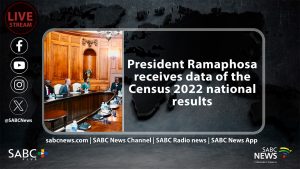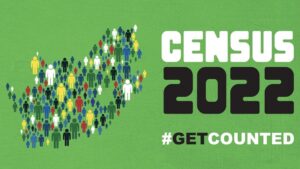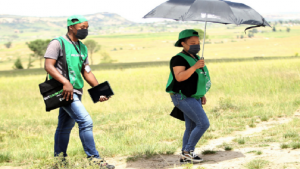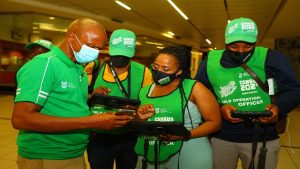Residents of Plastic View near Rustenburg in the North West are complaining that they have been left out. They say they have been staying in the area without clean drinking water, sanitation, electricity and proper houses.
They say although Statistics South Africa (Stats SA) had visited their area before for census data collection, they still do not understand why that information is not used to try and cater to their needs.
Plastic View has allegedly been in existence for years. It was reportedly a hiding place for people involved in the struggle during the apartheid era. Fast forward 28 years into democracy, there are still people residing in inhabitable conditions.
Most of their shelters are made of plastic or timber structures. The area receives no basic services from the Rustenburg Local Municipality.
“I have been staying in Plastic View for 14 years. The Rustenburg Local Municipality has really disappointed me. The municipality promised to take me to Rietvlei, even now I’m waiting,” says one of the residents.
Another resident says: “We don’t have toilets. We don’t have water. The water that we use for laundry is from the river, the very same river we use to relieve ourselves.”
Promises not fulfilled
One of the community leaders, Samuel Seribe says the municipality had told them they would be moved to Rietvlei and be provided with better services. But they still find themselves in the same area, with the same conditions.
They say although Stats SA collects their data, it seems the municipality is not using that information to help change their lives.
“Stats SA is giving all the information to the municipality but the municipality doesn’t come back to where the people are staying. It’s giving us a problem.”
The Rustenburg Local Municipality has acknowledged that the expansion of informal settlements in the area makes it a challenge to provide adequate services to communities.
“Our residents who live at the so-called Plastic View, the negotiations to relocate them to a decent formally proclaimed residential areas are ongoing. The current statistics will help a great deal in terms of us planning well,” says the spokesperson for the municipality Thapelo Matebesi.
However, Local Government Expert Professor Berry Hanyane says government is lagging behind in terms of finding relevant methods of understanding their communities and providing them with adequate services.
“Unfortunately there’s a disjuncture between what the municipality can do and have, as a source of knowledge in order to make informed decisions. We don’t have a national municipal template that will then allow municipalities to be able to generate the kind of data and analyse that so that in the end your municipal councillors are able to be informed by their own stats, which will influence decisions.”
People encouraged to take part in the census
Stats SA will be conducting its census across the country until 28 February this year. Deputy Minister in the Presidency, Thembi Siweya, has encouraged everyone within the country’s borders to take part. This will be the fourth census undertaken by Stats SA since 1994.
Siweya, accompanied by officials from Statistics South Africa, visited Diepsloot north of Johannesburg interacting with residents, business owners and taxi operators.
They were encouraged to take part in this year’s census. From Thursday until the end of February, enumerators will visit people in their homes where they will be asked numerous questions including those related to demographics, income, health, and employment status. Siweya says all people in South Africa will be counted.
“The data that you give to Stats SA remains with them by law they are not going to give to the next person. They are going to use it and come back to us and say this is the number of people who live in South Africa. These ones are not going to school, and they should be in school. These ones are using this one clinic, meaning we need to build more clinics and hospitals. These ones do not have households we need to increase in terms of RDP houses.”
Today, Presidency Deputy Minister Thembi Siweya leads the Gauteng Stats SA provincial Census 2022 awareness campaign in Diepsloot Taxi Rank in the Gauteng Province. @GovernmentZA @PresidencyZA @ThembiSiweya @StatsSA @Pinky_Kekana1 pic.twitter.com/GjSRBWblu8
— DPME (@DpmeOfficial) January 31, 2022
More than 34 000 Stats SA field workers have been employed to conduct the Census. Stats SA Gauteng Head, Thabo Mantshidi, says a number of questions will be asked and the information will be kept confidential.
“We will look at demographic information, your age, sex, population group, marital status. We look at migration patterns; we look at economic activity, employment and unemployment information, the household structure in terms of how many people are living in the household, what are the things that they are having. There will be an income question to check the income levels of those that are there in the household and so forth, fertility and mortality rates within the population.”
Stats SA officially launched Census 2022:
Participate online
For the first time, those with access to technology in the form of smartphones, tablets, and computers will be able to conduct the census themselves by going onto the StatsSA website.
Siweya says fieldworkers will be identifiable through their green branded T-shirts and will have name tags to ensure that people do not open their doors to criminals pretending to be conducting the census.
“And that is one of our major concerns. With our field workers, they have tried so much that in the recruitment process you take locals who stay here. In Diesploot, the people who will be counting are people who stay in this community. The second one is that they will have regalia, have a sticker or tag. Now for you to make sure these ones are from Stats SA you can go onto our website, everybody who is our fieldworker shall have published all their names and we believe that we will then give confidence to our people that they can freely participate.”
It is mandatory to participate in the census. Refusal to answer questions is an offence in terms of section 16(2) of the Statistics Act.






